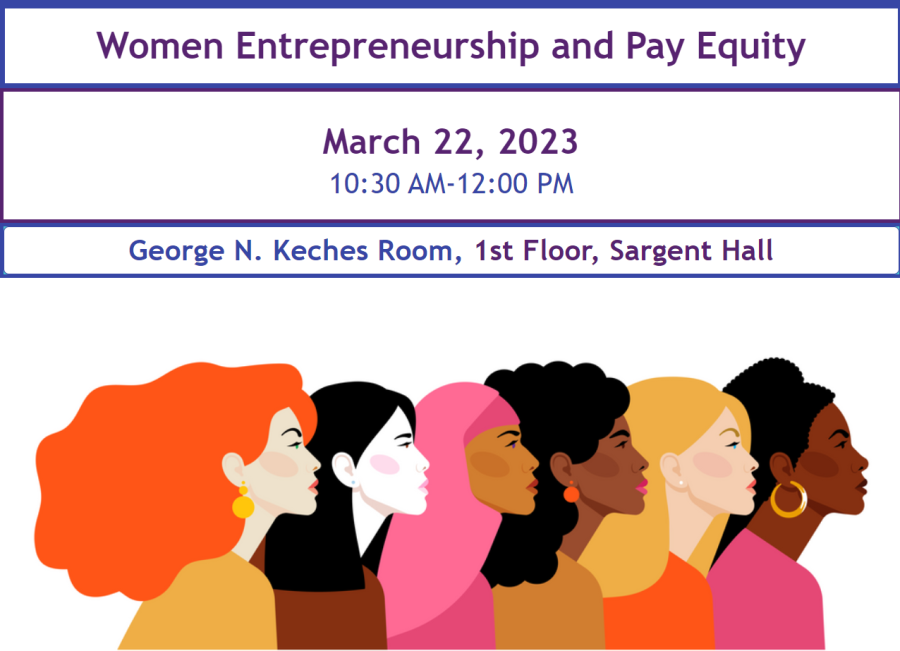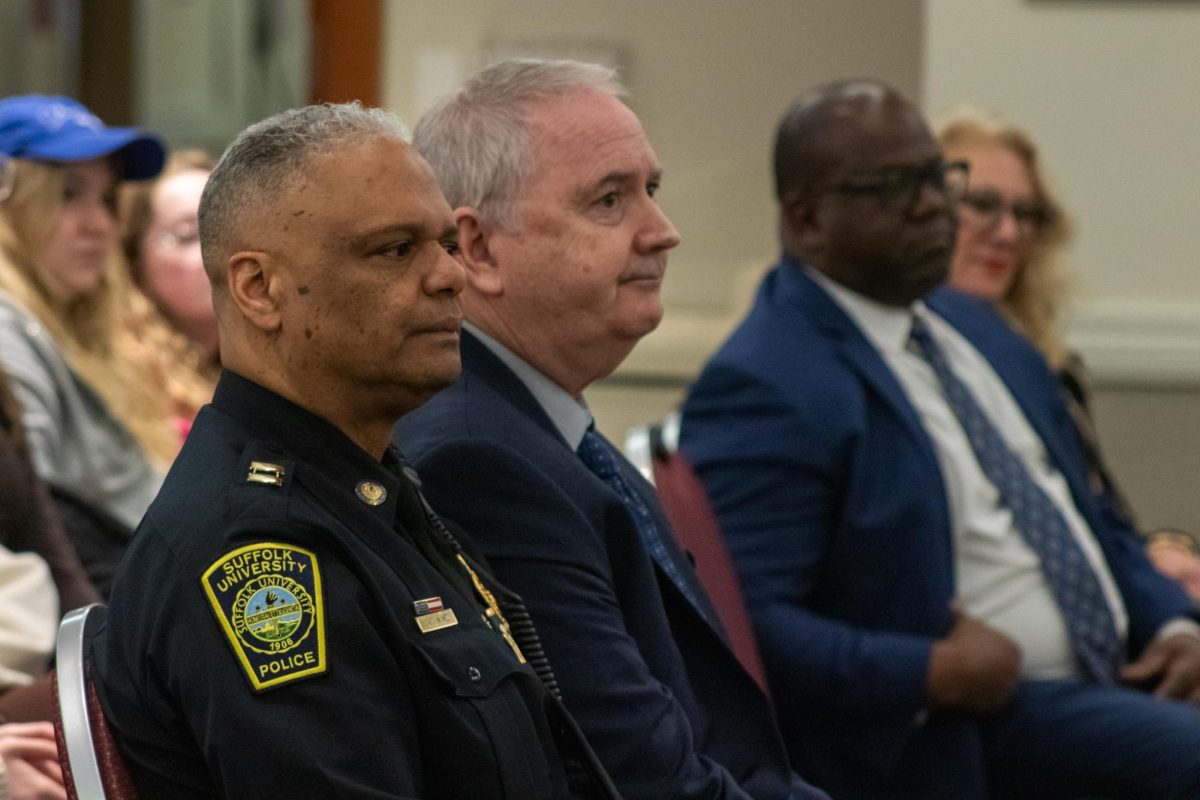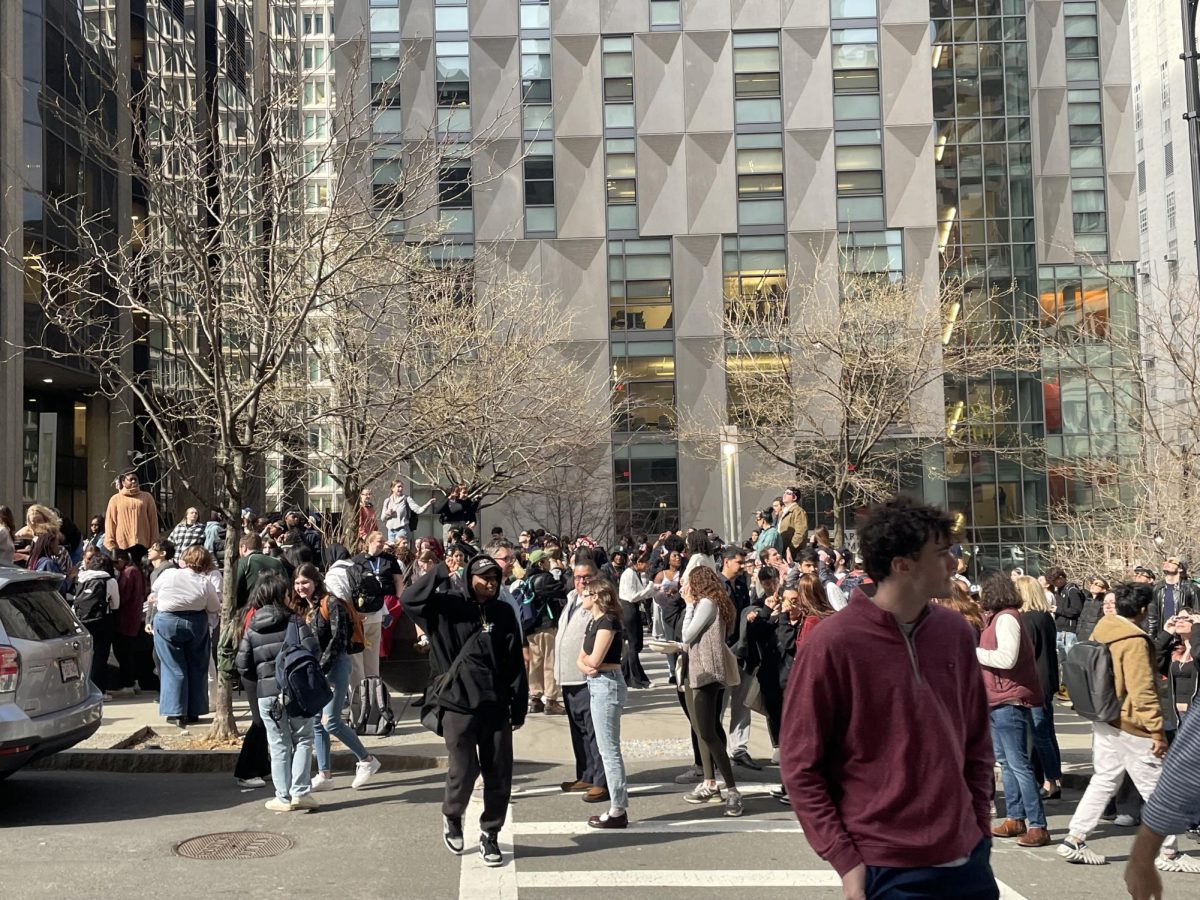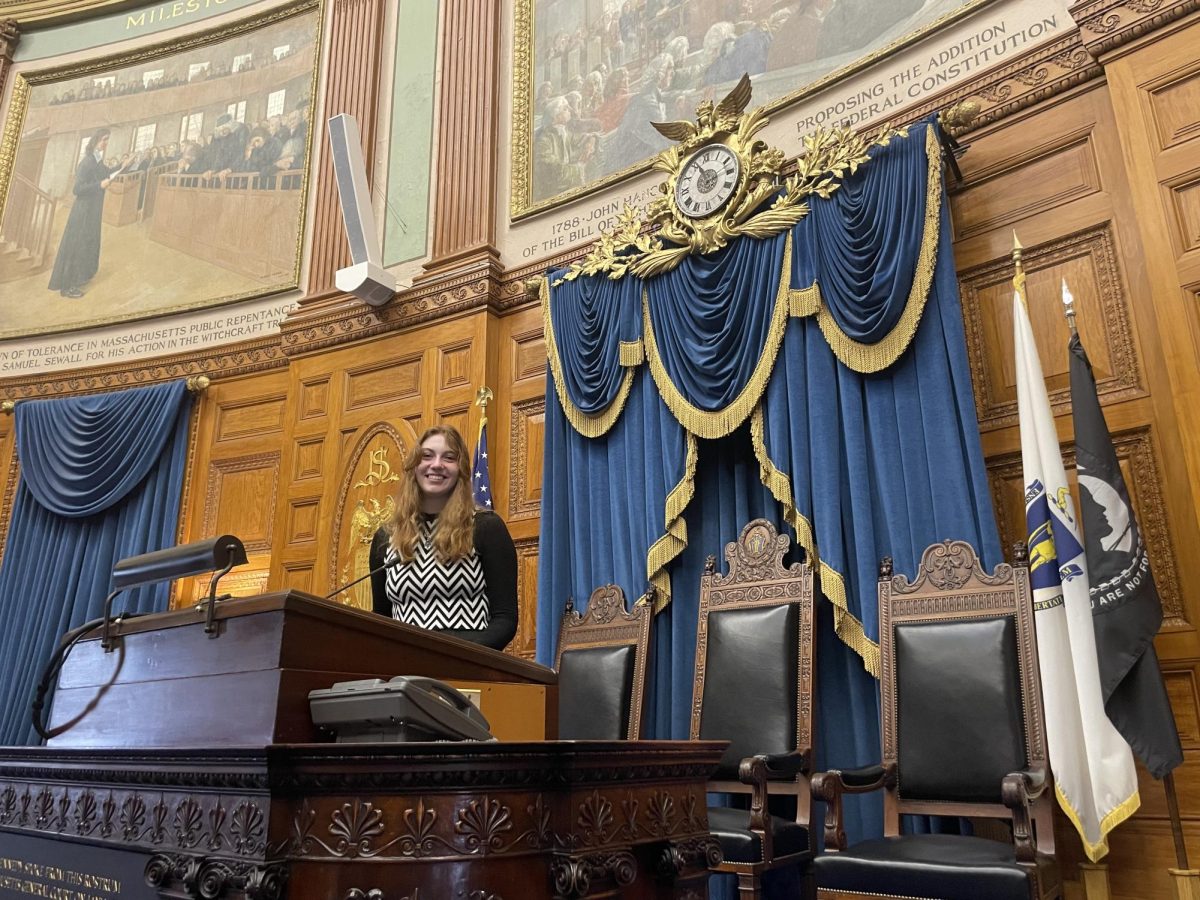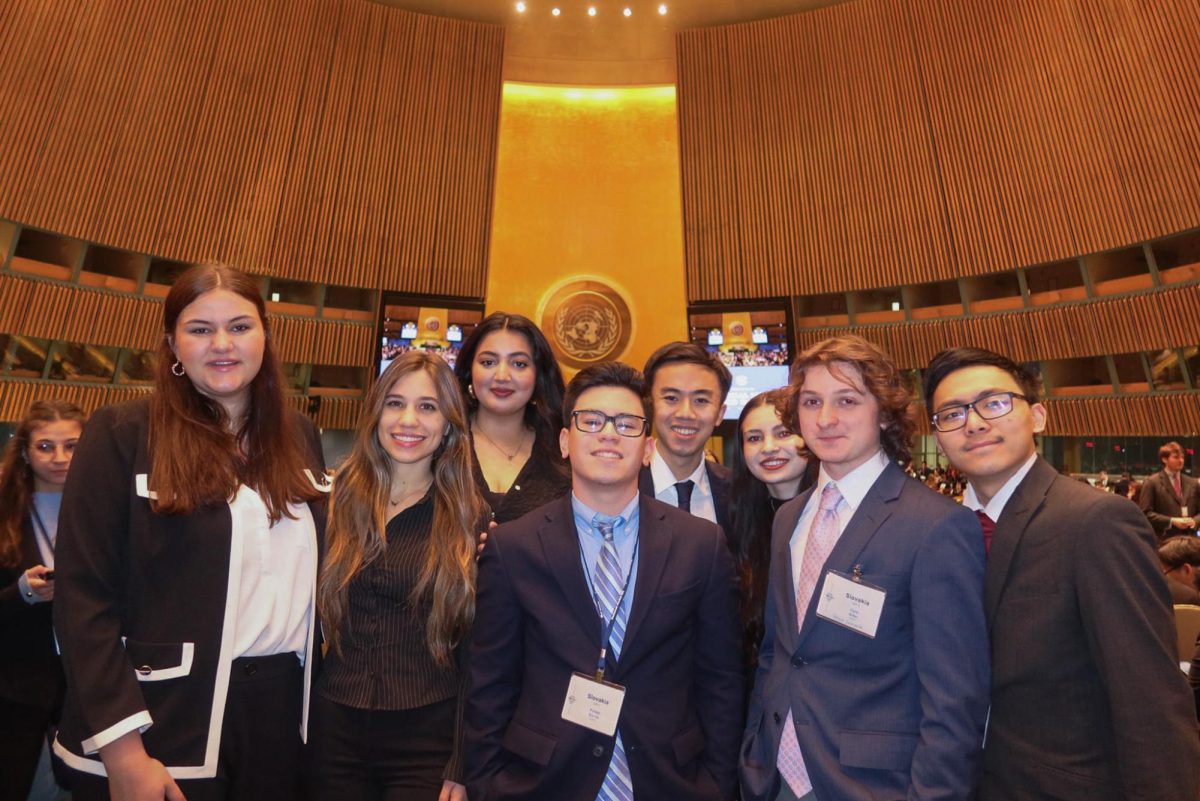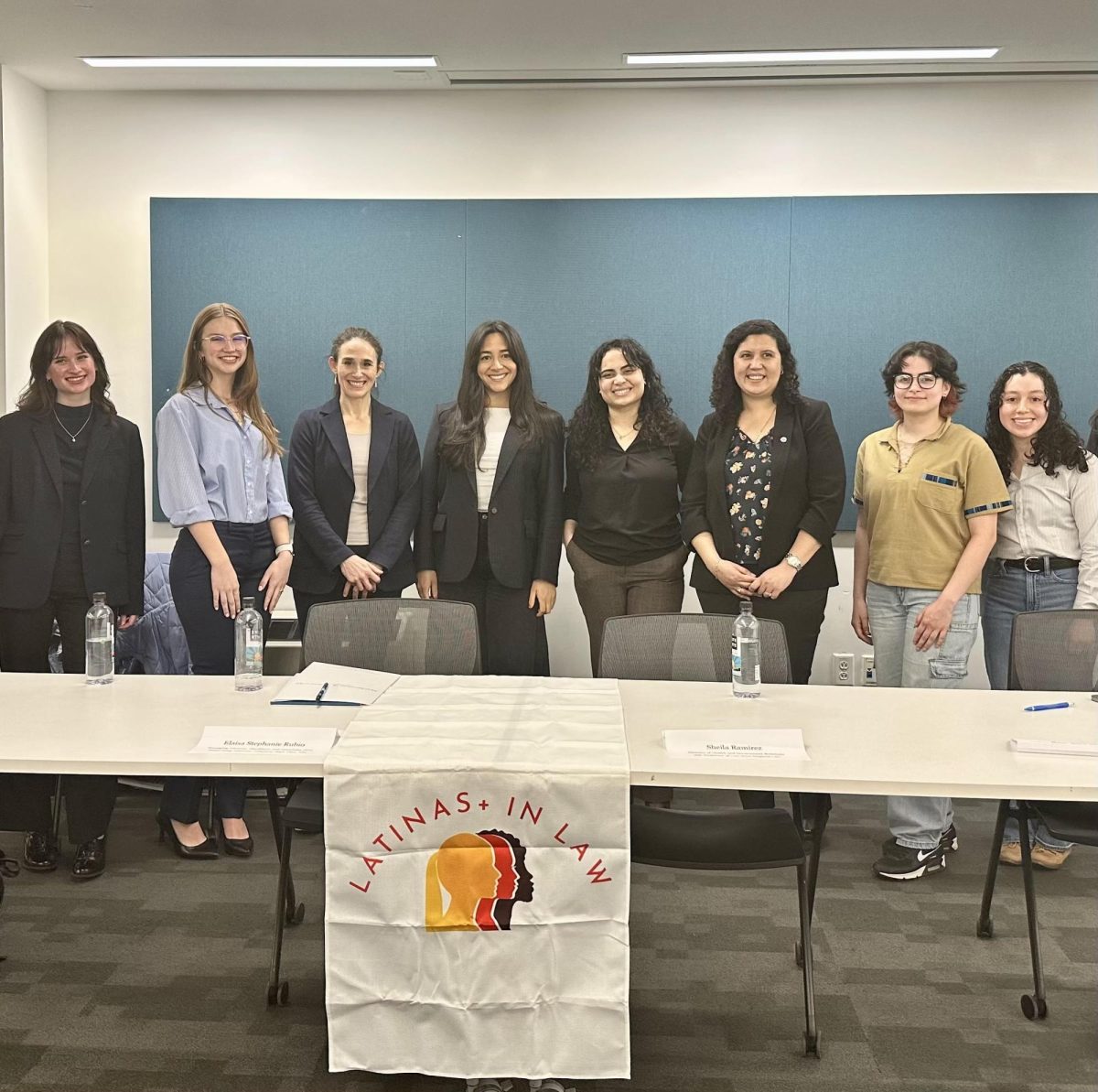Suffolk University hosted the Women’s Entrepreneurship and Pay Equity panel on March 22 in honor of Women’s History Month.
Panelists included Boston Women’s Workforce Director of Engagement Cindy Nguyen and Operations Manager Renee Lucas. It also featured Jeanine Niyonzima, owner of Twin Bee Coffee. The discussion was moderated by Ford Hall Forum Director Susan Spurlock.
Discussion focused on the issue of the growing wage and opportunity gap between women and men in the workforce. Panelists were accompanied by a presentation of some statistics gathered from government census information. The data was gathered through the Wage Gap Measurement Program, which analyzes employer provided salary, multi-party computation software and information collected from employees regarding compensation, performance pay, race and gender.
The average compensation in 2021 for men was $121,859, where for women this statistic fell at $85,041. This staggering statistic was followed by a breakdown of the wages described through racial and minority women’s average pay within the generalized category of women.
“I think oftentimes, even though we talk about addressing gender pay equity, it really intersects, I think, with race identities to underlying barriers of discrimination and unconscious bias,” said Nguyen.
Hispanic and Black women fell by the wayside in their compensation rates when compared to that of white men. When a white man makes a dollar, on average, Hispanic and Latina women make 45 cents. Black women make 49 cents. White, Asian and Native American women all fell around 70 cents to the dollar.
Steps have already been taken to reduce pay gaps across the workforce. The panel discussed how the current approach against this is salary transparency between employees.
“[Pay transparency] allows women to also know how they can negotiate. They can actually have a healthy conversation around what is a realistic salary,” said Nguyen.
In Massachusetts, employers cannot ask for a prospective employee’s previous salary, which the panel cited as a defensive action to protect women in the workplace.
Nguyen also described the common misconception about the necessary steps to reduce inequity, saying that government groups targeting the fluctuating costs of living in an attempt to reduce costs are not looking at the larger issues at hand.
“When you talk about this in this way with employers in government… you know we can do all these other additional programs, like reducing food causes and reducing energy costs, but if we’re not targeting some of the more fundamental issues, which is income and salary disparity, we’re never going to achieve true equity,” said Nguyen.
The panel also discussed how the equal rate of promotion and extending opportunities factored into the retention of female employees.
“You know so many conversations I have are folks saying, ‘Well, we’re still dealing with women leaders leaving what can we do to stop that,’ and really trying to take that back end,” said Lucas.
Oftentimes companies don’t take into consideration their promotional practices, according to Nguyen. When examined, a workforce with equal men and women employees could still be unequal in opportunity.
“There’s a recent survey out in the Harvard Business Review, where only 9% of companies actually track. They will say they hire 50% men and 50% women. After that they don’t actually track proportionality of how many women or men are actually getting promoted,” said Nguyen.
Niyonzima shared her own story of inequitable promotional practices with a company.
“Actually, I left corporate America because I was fed up with the fact that I have the same education, maybe even some time like higher education in higher performance than my counterpart white male that was still making more money than I did. I said, ‘Forget it. I’m just going to go and start my own business,’” said Niyonzima.
Her own business is actively empowering women from East Africa, creating an initiative for female coffee farmers and curating a more independent financial structure for them. Niyonzima’s business model aims to deconstruct the employment discrepancies between men and women.
The panel’s discussion encouraged both students and other companies alike to further combat bias year round rather than limiting initiatives to one month out of the year. However, Lucas noted that some companies only actively promote their equal pay practices during Women’s History Month.
“When last week was national equal pay day, so many were so excited to say [they’re] paying fairly. Well, great. It’s the law,” said Lucas.
Niyonzima added onto Lucas’ sentiments of businesses choosing when to partake in inclusive and equitable practices and promotions, and shared an instance where a business asked to serve Twin Bee Coffee for Black History Month. “No, stop it. You have to serve our coffee every month,” said Niyonzima in response.
With such a prominent female workforce, the panel shared their sentiment that this conversation needs to continue at all times in order to enact change.
“This is a conversation we should be having every day, not just today, not during women’s history month,” said Lucas.


